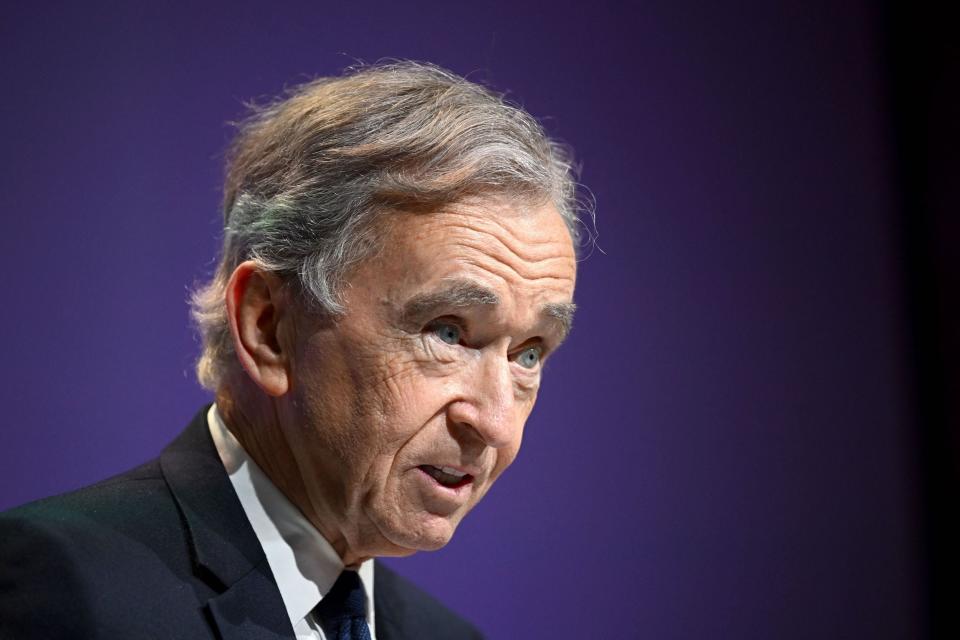LVMH's Bernard Arnault has gone from the world's richest person to flirting with 5th place after a $54 billion wipeout

Bernard Arnault has gone from the world's wealthiest person to being on the brink of dropping to fifth.
The LVMH CEO's net worth has tanked by $54 billion from its March peak, and $30 billion so far this year.
LVMH stock has slumped 16% this year as softer demand has hit the company's sales and profits.
Bernard Arnault was the richest person on the planet six months ago; now he's flirting with fifth place.
Arnault is the founder and CEO of LVMH Moët Hennessy Louis Vuitton, the French luxury-goods behemoth. In late March, he was worth an estimated $231 billion, ranking him ahead of Tesla CEO Elon Musk and Amazon founder Jeff Bezos at the top of the Bloomberg Billionaires Index.
The fashion tycoon's fortune has shrunk by $54 billion since then to $177 billion at Wednesday's close. That places him fourth and only $1 billion ahead of the Oracle cofounder Larry Ellison.
Arnault's net worth has tanked by $30 billion this year, making him the biggest wealth loser among the 500 individuals on Bloomberg's list. He's also the only person among the 18 richest people who's in the red for 2024; the others have all gained at least $14 billion and as much as $63 billion.
Forbes' wealth rankings tell a similar story: Arnault has dropped from first place, with a $233 billion net worth on March 8, to fifth, with a $175 billion fortune, behind Musk, Bezos, Ellison, and Meta CEO Mark Zuckerberg.
The wealth hit for the "Wolf in Cashmere" reflects a 16% slump in LVMH's stock price to its lowest level in two years. Arnault owns about 48% of the luxury conglomerate, which houses around 75 brands, including Tiffany & Co., Louis Vuitton, Dom Perignon, and Sephora.
LVMH shares have been hit by the company's troubles. It struggled in the first half of this year with underlying revenues inching up only 2% and income from recurring operations sliding 8%. Underlying profits tanked 26% in the wines and spirits business, 19% in watches and jewelry, and 6% in the key fashion and leather goods segment.
Arnault also warned of a "climate of economic and geopolitical uncertainty" in the earnings release. Meanwhile, Bloomberg reported last month that Sephora was slashing its 4,000-person workforce in China by 10% to weather a challenging local market.
The luxury industry boomed after the pandemic as travel resumed and pent-up shopping demand was released. But it has struggled more recently as historic inflation, steeper interest rates, and recession fears have tempered demand even among wealthy consumers.
Read the original article on Business Insider
Breaking news
See all






